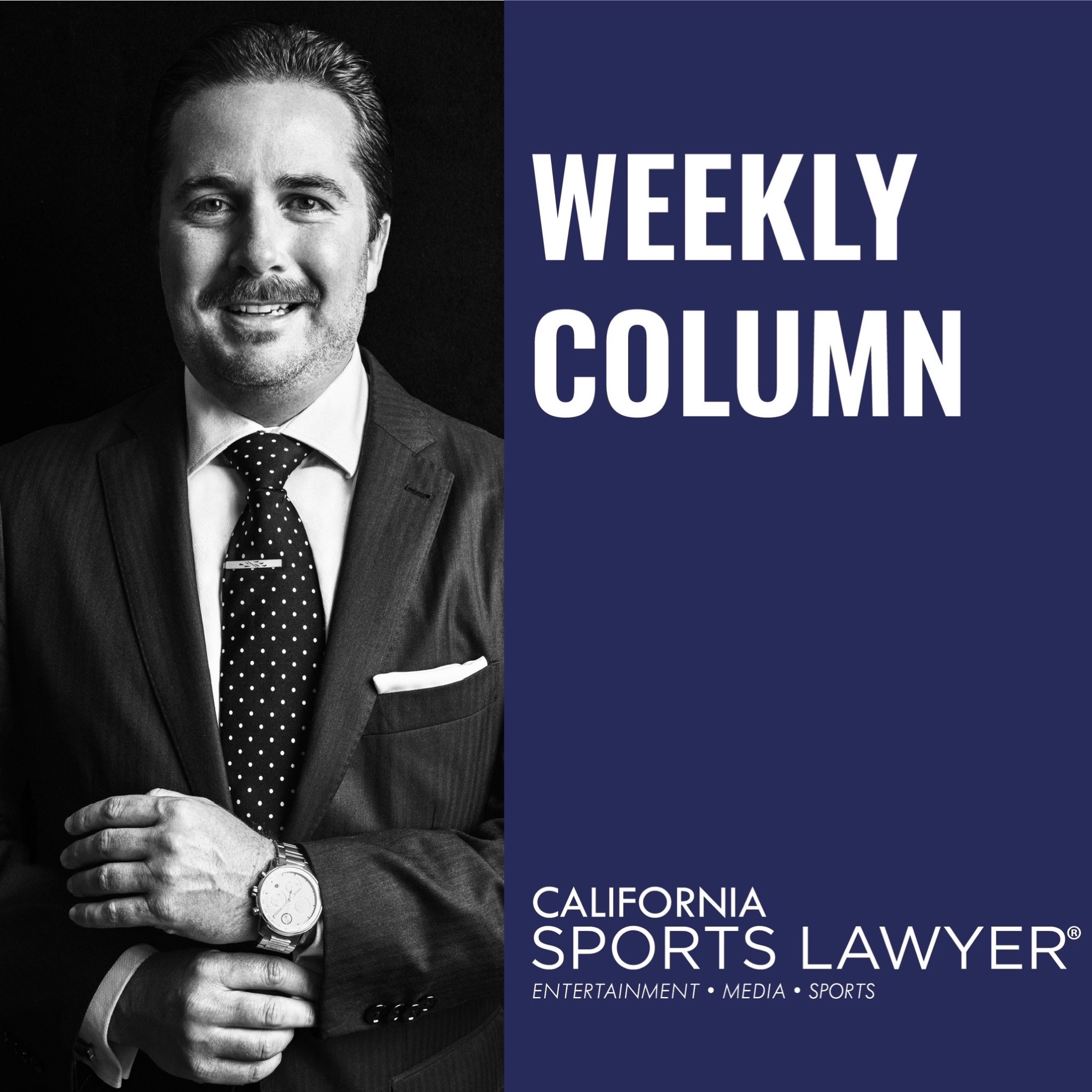In this week’s column, California Sports Lawyer® CEO, Founder, and Managing Attorney Jeremy M. Evans writes about the need for networks and streamers to think creatively about utilizing their star power on other networks that explores coordination as opposed to exclusivity to increase interest and viewership.
Athletes and entertainment talent have the ability to access more viewers, dollars, and influence by considering changes to their negotiation strategy and contracts.
You can read the full column below. (Past columns can be found, here).
~
Exclusivity versus access. As much as streaming platforms, networks, and copyright holders are looking to find ways to access to more viewers, athletes and entertainment talent are looking to do the same thing. Consolidation is also a strategy of entertainment and sports corporations as opposed to mergers and acquisitions.
Athletes and entertainment talent have the ability to access more viewers, dollars, and influence by considering changes to their negotiation strategy and contracts. For example, former Eagles star and now podcast favorite Jason Kelce was recently told he could not appear for YouTube TV because of his exclusivity with ESPN. Kelce would have appeared on YouTube as part of the streamers coverage of the Chiefs versus Chargers NFL game being played in Brazil. ESPN’s policy of not lending its contracted talent to other streamers has been enforced across the board and unless negotiated in a contract the Disney-owned network will not be changing its stance.
All talent should be considering a multi-platform approach that is grounded in contract law. Practically this means asking for the ability to appear on podcasts, radio shows, and other television, streaming, and radio shows especially during the offseason, when there is no scheduled conflict, or just to create a carve-out. If there is concern about exclusivity, specifically call out the items that the talent knows is likely to happen or leave wiggle room for negotiation. Platforms needs to realize that more exposure is better and will eventually lead to viewers coming back to watch talent on the platform.
In the case of Kelce, his New Heights podcast already appears on YouTube and so it makes natural sense to have some crossover. Pat McAcfee is a podcast and television superstar and he has some ability to go between platforms, but again there is limitations by ESPN. While LeBron James is currently playing, he does have his own media ventures separate from the Lakers. Arguably, James has more business freedom to appear on television than McAcfee and Kelce. That seems odd and somewhat backwards since James is making more money and is currently playing. Athletes whether actively playing or not are brands and their company partners should be looking for more exposure, not less.
In comparison to the entertainment industry, movie stars are rarely exclusive to one studio or streamer today and if they are it is for a set amount of films, but there is still room to be contractually creative, pun intended. The music industry can present issues for artists as a set amount of albums could take years to create and distribute. Films on the other hand along with television allow for flexibility as long as scheduling can be accommodated. Obviously, the bigger the star, the more they can demand more leverage and better contractual terms.
However the contract is drafted, there is a need for consideration of how the industry has evolved. Networks and streamers would be wise to share star power across networks on a limited basis to create interest in their shows and vice versa. Today’s customers follows brands and individuals because of social media. As exclusivity clauses evolve in contracts, it is important to balance control and flexibility with stars that will shape the next decade of sports and entertainment media.
~
About Jeremy M. Evans:
Jeremy M. Evans is the Chief Entrepreneur Officer, Founder & Managing Attorney at California Sports Lawyer®, representing entertainment, media, and sports clients in contractual, intellectual property, and dealmaking matters. Evans is an award-winning attorney and industry leader based in Los Angeles and Newport Beach, California. He can be reached at Jeremy@CSLlegal.com. www.CSLlegal.com.
Copyright © 2025. California Sports Lawyer®. All Rights Reserved.





